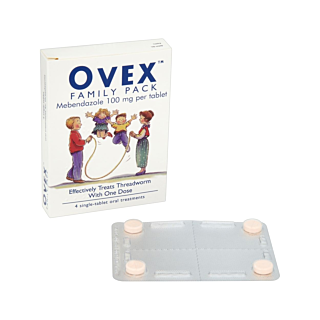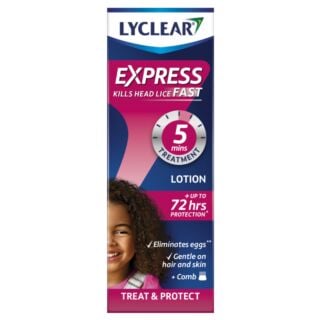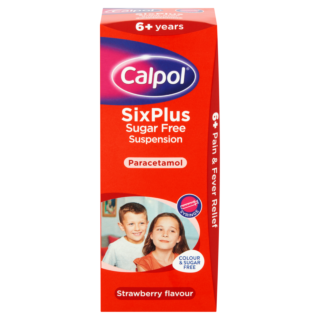Back-to-school essentials for a healthy & happy school year

It’s that time of year - school’s out, but it won’t be long before you’re prepping for the new term. Preparing your child for school is a big deal - there is a lot to consider! Fortunately, we’re here to help ensure your baby, child or teen has a smooth start to the new school year and is well prepared for any ailment.
School life has its stressors at times, with colds, flu, anxiety and accidents on the playground. With proper preparation and stocking up on the essentials, your child can be happy and healthy all year round.
Here you’ll find a list of essentials for any eventuality.
Head lice treatment
Head lice are notoriously associated with schools as this is where children are most likely to catch them. Head lice are tiny insects (almost difficult to see with the naked eye) that feed on blood from the human scalp, and they’re passed from close head-to-head contact. They’re quite bothersome and can cause severe itching of the scalp, and contrary to popular belief, head lice are not caused by uncleanliness.
You can’t prevent catching head lice, but with regular checks and treatment, you can prevent them from getting out of control.

You can physically remove head lice from the head using a specialist nit comb. This is the preferred treatment, however, if this isn’t working you can try medicated lotions or sprays to kill the lice. You should follow this with more wet combing to remove the dead lice and their eggs.
Other parasites to be aware of which are commonly spread amongst children are threadworms. These are tiny worms that live in poo and cause severe itching around the anus and irritation at night when the worms come out. They’re spread through touching any objects that someone with threadworms may have touched, this could be anything from toys and surfaces, to food and pets.
If threadworms take hold in your household, treat the whole family at the same time with one dose of Ovex.
PPE
Although not a legal requirement as it stands in the UK, it may still be wise to have some personal protective equipment available such as face coverings and hand sanitiser to minimise the risk of catching Covid-19 if the cases rise.
Hand washing is the best way to prevent catching any type of virus. Encourage your children to clean their hands regularly - sanitiser may be more convenient for them to use during the school day.

Cold and flu remedies
Sometimes catching a cold or flu is inevitable and it can be disruptive to your child’s education. Ensure you’ve got supplies ready to help your child recover quickly from their illness so they can get back to learning and having fun!
Whatever their symptoms, whether it be congestion, runny nose, sneezing, coughing or fever, we have a medicine tailored to relieve them. Calpol is the ‘go-to’ brand for children’s ailments; the sweet taste makes it easier to administer to children making them feel better quicker.
Vitamins and supplements
Prevent colds and flu by building your child’s immunity with essential nutrients that help the body fight off viruses and bacteria.
Vitamin D in particular is a vital vitamin for immunity and growth in children. The best source of vitamin D is from the sun, but it’s important not to expose children to UV rays. A supplement is a great way of ensuring your child gets enough of this vitamin. It’s advised to still give young children a supplement, even if they do get sunlight, as it’s so important for growing bones, muscles and teeth, not to mention the amazing benefits it has on the immune system.
Other vitamins and supplements that not only prepare your child’s immunity for the cold and flu season but also enhance their learning by boosting their brain development include:
Children’s vitamins come in many forms including liquids and gummies, most taste great too so they’ll look forward to taking their daily vitamins!
Toiletries
Back-to-school essentials wouldn’t be complete without toiletries. This includes skincare, dental care, sanitary products, deodorants and shaving for teens (if they choose to shave).
We have everything you need to help your child feel healthy all year round, as well as make the school routine easier. Whether it’s getting them ready for the school day with a relaxing bedtime bath using their favourite washing and bathing products, or using their most loved character toothbrush so that getting ready in the morning is as easy as 1-2-3!

First aid
Last but not least, you should probably keep a first aid kit handy for the inevitable accidents on the playground.
Children love to play and be adventurous, but this can often lead to injuries. Avoid tears by keeping cuts and grazes clean, bandaged and protected from infection. You can shop all first aid essentials including plasters, antiseptics, anaesthetics, and thermometers right here on Chemist4U.
And there you have it, everything you need to start a fresh educational year whatever your child’s age.








